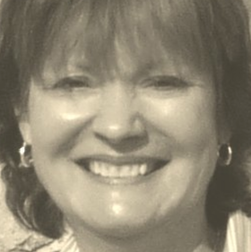What is a blessed church? It is a church uniquely grounded in a relationship with God that allows blessings to flow through it. It is a church with a vibrant sense of faith, hope, and love. It is a church that embraces the sacred and that is not afraid to serve God in its own way. Pastor and author N. Graham Standish describes how a church that is open to God’s purpose, presence, and power can claim God’s blessing.
Standish shares the story of Calvin Presbyterian Church in Zelienople, Pennsylvania, and its journey to become a spiritually deep congregation, one that is inwardly and outwardly healthy: spiritually, psychologically, physically, and relationally. Becoming a blessed church will help you discern God’s purpose and the path God is calling your congregation to walk. This book will help you find Christ in your midst and become aware of the many ways the blessings of God’s Spirit flow through your congregation.
Our latest course, Deepening the Spirituality of Your Congregation with Graham Standish, launches today, for both individuals and For Groups. Graham’s book, Becoming a Blessed Church (from which the above is taken), chronicles his own parish’s journey in re-placing God at the  center of all leadership, vision creation, and meetings. In Graham’s understanding, most mainline churches have come to run themselves solely as businesses, with majority-rules votes taken during meetings — and not as actively prayerful places of discernment (at least, outside worship services). He contends that a church whose leadership focuses primarily on functionality — rather than prayerful study and group discernment — is one whose decisions are made according to the will of the leaders, and perhaps not of God.
center of all leadership, vision creation, and meetings. In Graham’s understanding, most mainline churches have come to run themselves solely as businesses, with majority-rules votes taken during meetings — and not as actively prayerful places of discernment (at least, outside worship services). He contends that a church whose leadership focuses primarily on functionality — rather than prayerful study and group discernment — is one whose decisions are made according to the will of the leaders, and perhaps not of God.
What does he mean by this? Well, consider how your church’s governing body makes decisions: if you ask, “All in favor, say ‘Aye'” and not, “All who feel that this is God’s will, say ‘Aye'” you may have slipped into the “functional” track. Sometimes those two questions can yield the same answer, but often, the first kind of question helps church leadership forget that God is in charge and that its role is to discern God’s will. It makes “secret deists” who nod politely toward God in their opening and closing prayers, but ask God to step aside for the majority of the meeting and the decision- and plan-making.
Graham’s church has tried some radical rethinking of leadership and visioning, and the results are striking. Church leaders pray more, read and study more, grow in their faith more deeply and deliberately, and this has led to a stronger and more spiritually-grounded congregation overall.
Take Graham’s course, Deepening the Spirituality of Your Congregation — and see if the way your church leadership operates could use a little rethinking. We’d be interested to hear your comments on our Facebook page. We commend this course especially to clergy and lay leaders of churches.
To learn more about Graham and to make use of his free resources, click here.










